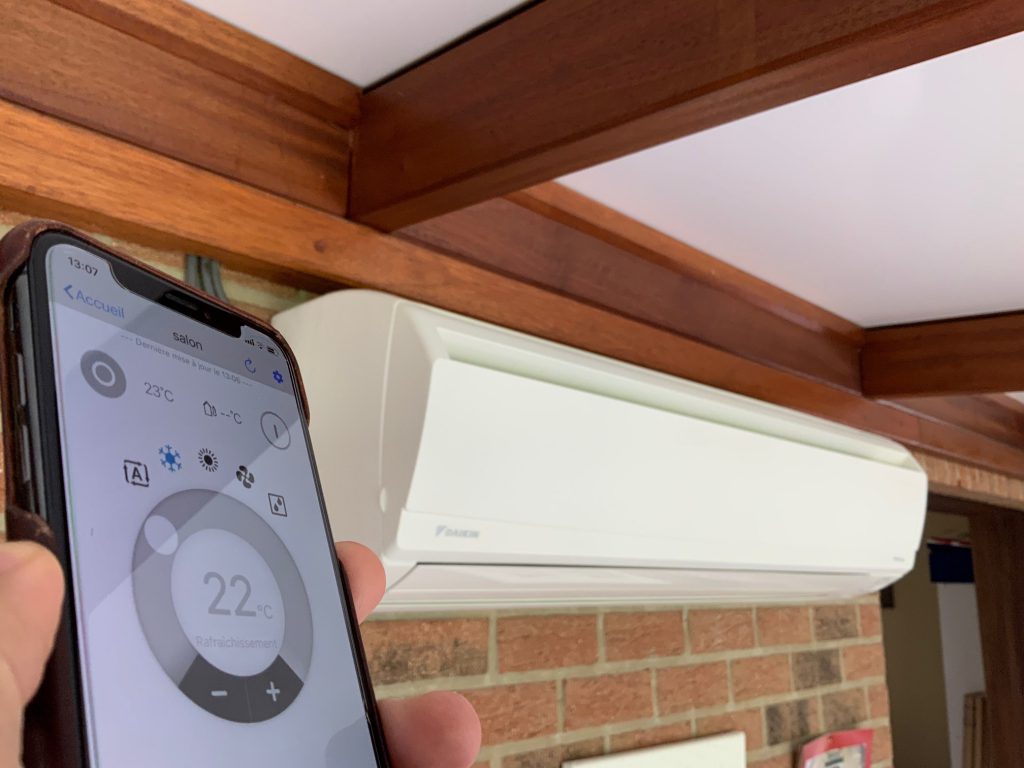In today’s world, most of us have heard about smart kitchens and connected homes, but few are aware that air conditioning technology has also evolved significantly. The market for smart devices has been booming for several years, and this includes air conditioning units. Manufacturers are going all out to offer air conditioners that are easy to operate via a smartphone or tablet, greatly enhancing user comfort.

Why smart air conditioners?
The primary advantage of a smart air conditioner is its convenience. Imagine you’re out grocery shopping and don’t want to return to a home that feels like a furnace. A smart air conditioner allows you to take control remotely from your smartphone and access a range of data via a dedicated app. Because the device is connected to your home’s Wi-Fi, you can perform tasks like starting or stopping the unit and adjusting the temperature, all from a distance.
Multiple benefits
Energy Efficiency
One of the most significant advantages of smart air conditioners is the ability to schedule your cooling times from your tablet or smartphone. This feature is particularly beneficial for limiting the energy consumption of these devices, which are often power-hungry, by running them only when necessary.
Weather Adaptability
Some smart air conditioners take into account not just the indoor and outdoor temperature but also weather forecasts to minimize electricity usage. This feature allows the unit to adapt its cooling power according to the weather conditions, providing an optimal indoor climate while conserving energy.
Motion Sensing
Other advanced models can even track your movements and adjust the room temperature accordingly. For instance, when you leave a room, the air conditioner automatically turns off, ensuring that energy is not wasted cooling an empty space.
Installation and compatibility
Installing a smart air conditioner is generally straightforward. Most units are designed to be user-friendly and come with detailed instruction manuals. However, it’s essential to ensure that your home’s Wi-Fi network is robust enough to handle the additional device. Compatibility with other smart home systems like Google Home or Amazon Alexa can also be a deciding factor for those who wish to integrate their air conditioner into a broader smart home ecosystem.
Cost considerations
While smart air conditioners are more expensive upfront compared to traditional units, they can be cost-effective in the long run due to their energy-saving features. By optimizing cooling schedules and adapting to weather conditions, these units can significantly reduce your electricity bills over time.
Security concerns
As with any connected device, smart air conditioners are not entirely free from security risks. It’s crucial to choose models from reputable manufacturers and keep the device’s software up-to-date to protect against potential vulnerabilities.
Conclusion
Smart air conditioners offer a plethora of benefits, from enhanced user comfort to energy efficiency and adaptability to weather conditions. However, they come with their own set of challenges, such as higher upfront costs and potential security risks. Therefore, it’s essential to weigh these pros and cons carefully before making a purchase. With the right choice, a smart air conditioner can be a valuable addition to your smart home, offering unparalleled comfort and convenience.

 Open Immovlan
Open Immovlan